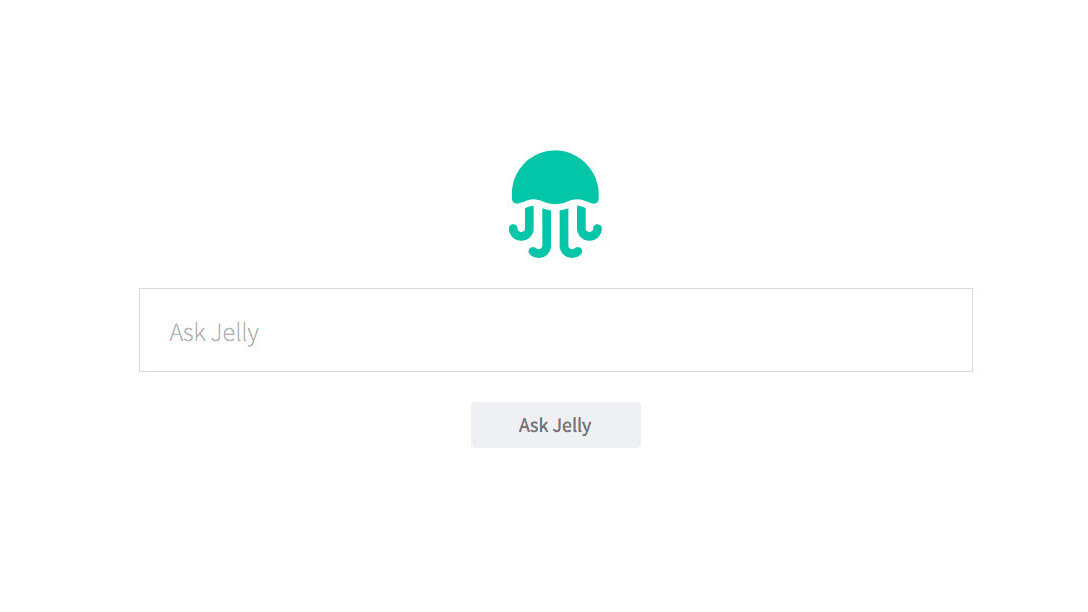
Jelly, a social question and answer app that allows you to ask your friends questions and (presumably) get answers to said questions, is back. If you’re not exactly jumping up and down, it’s probably because you tried the original Jelly app, which was sort of like Google, but in public. If you don’t understand why that’s a bad thing, go ahead and ask your Facebook friends whether that bump on your genitals is an ingrown hair or something… else.
Get the picture? This was Jelly.
While marginally useful to those with a rather large social network, it’s just an additional step before finding the right answer on Google for the rest of us. There are similarities to Quora or Yahoo Answers, but Quora was a far better solution, and Yahoo Answers at this point serves no purpose but to provide content for Buzzfeed.
So, back to Jelly.
Calling it an ‘un-pivot,’ Biz Stone is bringing back the Q&A app he created in 2013, only this time with an angle that could perhaps make it usable — anonymity.

The app remains close to its original form, but this time allows you to ask the questions you wouldn’t want your friends finding out about, like what different colors of poop really mean or if you’re really getting fat or just retaining water.
Sure, some of you would ask your friends these questions without hesitation, but for most of us, anonymity is the only way we’re ever asking what we really want to. Anything short of fully anonymous Q&A leads to questions that are always about “your friend” (poor guy), or those that don’t get asked at all.
Even with the anonymity aspect, you have to wonder what Biz Stone is hoping to accomplish by resurrecting a dead app. Is anonymity the cog that makes the entire wheel turn, and if so — why didn’t he try that with the original before killing it? I can’t answer these questions, but I think I have a generalized understanding of what it’s meant to be.
According to Stone:
We measure our success by how much time we save you.
We’ve decided not to measure our success by how fast we can show you a massive quantity of possible answers, or how much time you spend on our service. Once you ask a question on Jelly, you can go do something else.
This is the answer that makes Jelly compelling. Should Stone and his team manage to produce higher quality answers in a comparable amount of time (even if it’s not instantaneous) as a Google search (and wading through half a dozen pages or more), then Jelly will be a remarkable success. Of course, you can’t measure time as you would with an instant search from Google, but instead as a cumulative effort that takes into account wading through (sometimes) dozens of wrong answers to find the right one.
Anything less will lead to a marginal, fringe-y community that passionately uses Jelly while the rest of the world completely overlooks it for better alternatives — like Quora — or just sticks with Google. Quora is basically Jelly’s ceiling, although competition could drive innovation at both and lead to a new roadmap altogether.

But still, one has to wonder what need this fills. What chasm in the online universe is better served by a site that essentially positions itself as Quora and has failed to draw interest once before? It’s easy to make the argument that there isn’t one, but with Biz Stone’s track record and the possibility that this could turn out to be a better version of Quora, I’m willing to put aside my skepticism and give it a shot once it officially launches.
Currently, Jelly is in a closed beta and will be “launching soon.” In the mean time, you can reserve your username before it officially (re)launches.
Get the TNW newsletter
Get the most important tech news in your inbox each week.





